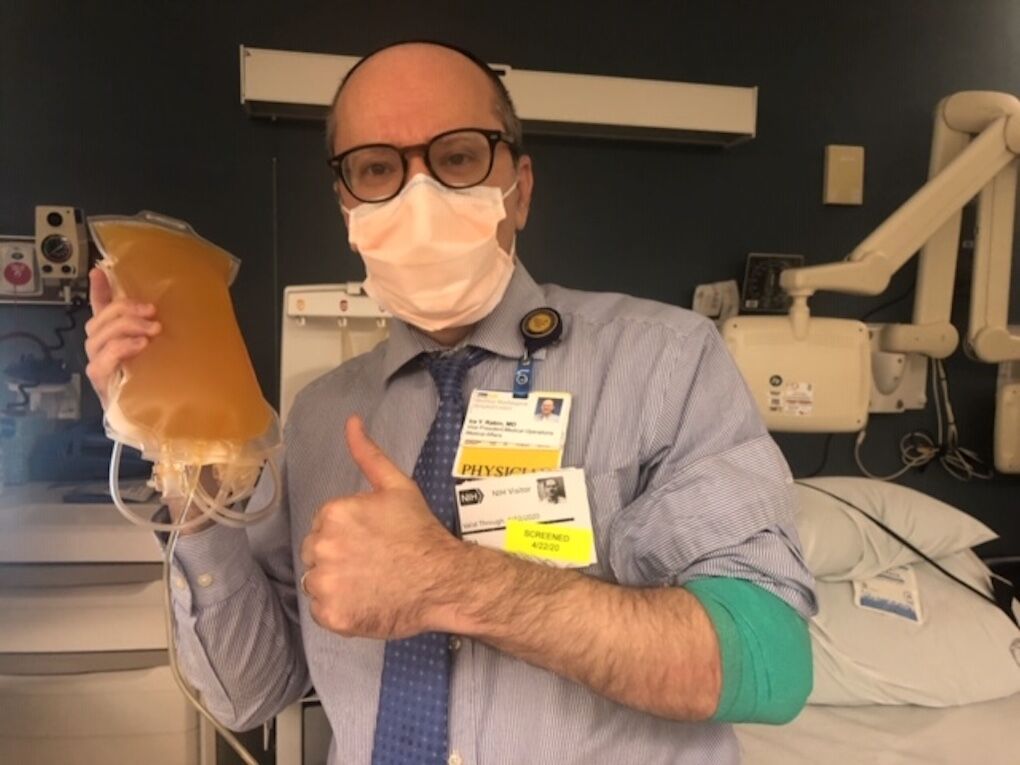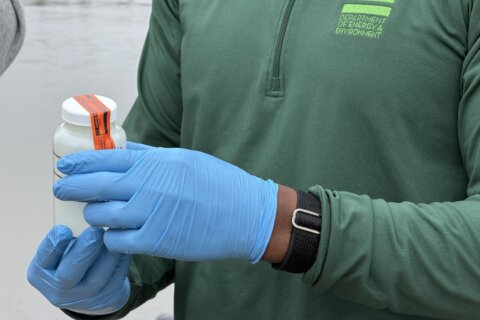
His symptoms included a fever, chills, muscle and body aches and weakness.
“They all started at once.”
Dr. Ira Rabin, Vice President of Medical Operations and clinical resource management at MedStar Washington Hospital Center in D.C., had the novel coronavirus in March.
He has now donated his plasma to help with those diagnosed with COVID-19, as well as with research.
“It was a no brainer,” Rabin said.
He said that he had a short course of the virus. It only lasted about four days for him.
“I never had any pulmonary symptoms such as cough or shortness of breath,” Rabin said.
In terms of how he contracted the virus, he said it’s hard to say. In the days and weeks before getting sick, he had traveled to the Seattle, Washington, area and to New Jersey.
When he first started noticing symptoms, he reached out to get tested.
“I got sick on a Sunday and immediately called occupational health and they advised me to get tested immediately at MedStar urgent care, which I did the same day, and also advised me to stay home, which of course I did,” Rabin said.
He said donating plasma was easy and only took him about 90 minutes.
Rabin said he is hopeful that his donated plasma not only helps patients with the coronavirus but that it also assists with research.
“I feel I was very lucky and very blessed to have such a short course of COVID-19 and such a mild case of COVID-19 and that if the antibodies and my blood can help other patients then absolutely it’s the right thing to do,” Rabin said.
“And beyond helping an individual patient or two, if by studying my blood we can further our knowledge of this disease, all the better.” Rabin said.
- Sign up for WTOP alerts
- DMV services across DC, Md. and Va. resume as reopening process continues
- What Loudoun County schools plan to do next school year
- Latest coronavirus test results in DC, Maryland and Virginia
- Coronavirus FAQ: What you need to know
- Coronavirus resources: Get and give help in DC, Maryland and Virginia
Looking for more information? D.C., Maryland and Virginia are each releasing more data every day. Visit their official sites here: Virginia | Maryland | D.C.
His advice to those who start having symptoms?
“Relax and stay calm. Be very mindful of your symptoms, especially pulmonary symptoms such as shortness of breath, worsening cough, wheeze, any sort of trouble breathing whatsoever,” Rabin said.
He also suggested purchasing a tool to monitor breathing.
“In addition, I would invest in a pulse oximeter, that’s a little device one can place on their finger to monitor their oxidization levels in their blood,” Rabin said.
When it comes to being anxious about the coronavirus, he said that patience is key.
“We are learning more about this virus everyday, we are learning more about potential treatments, we are inching closer to a vaccine everyday and we will get through this together.” Rabin said.








